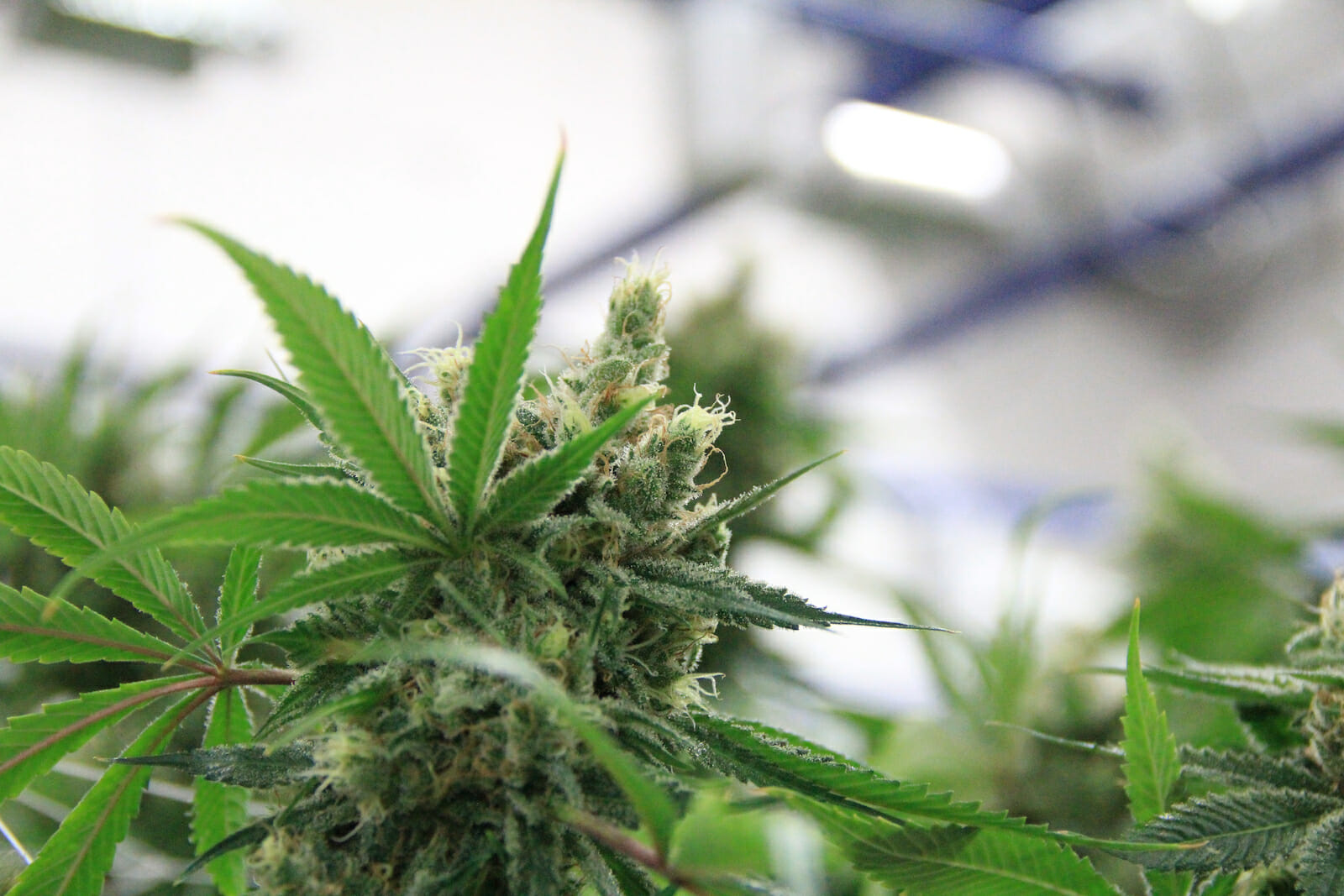
Health
Brazil’s Other Green Revolution: Cannabis for Medicinal Use
There are big developments taking place in Brazil, as the country’s National Sanitary Surveillance Agency (Agencia Nacional de Vigilancia Sanitaria: ANVISA) approved in early December a product registration fast-track that will allow the importation, and sale of medical cannabis in pharmacies while, at the same time prohibiting domestic cultivation.
Cannabis for medicinal purposes is a growing global industry. In fact, governments that have strong no-drugs policies make exceptions for medical cannabis. After all, cannabinoids, the substance derived from the plant, have been proven to be very helpful to assist patients who suffer from chronic pains, in addition to neurological and psychiatric diseases. The recent changes in legislation in Brazil will significantly change the CBD market and health system in the South American nation.
Recent developments
The Brazilian government’s response to medicinal cannabis has generally been (cautiously) supportive. Until only a few days ago, ANVISA had to approve requests, though patients have also gone to the judicial system to obtain approval to grow marijuana for medicinal purposes. The agency granted 3,310 new authorizations during the first semester of 2019 – almost the entire number of authorizations granted in the entire year of 2018.
The December 3rd changes to Brazil’s legislation means that we can expect a high flow of investments to medical cannabis operations in the country in the coming years, as ANVISA has set up new pharmaceutical parameters via which it can be registered and commercialized in pharmacies. “[The measure] becomes effective 90 days after its publication in the Federal Gazette and is valid for three years, at which time it may be reviewed,” the Rio Times Online explains. Now cannabis products will be sold in pharmacies and can be obtained with a medical prescription, all under the umbrella of ANVISA. On the other hand, a proposal that would allow cannabis to be cultivated in Brazil by legal companies was rejected.
Important sectors of the Brazilian government have maintained a generally favorable stance towards cannabis for medicinal purposes. For example, President Jair Bolsonaro has stated that he is in favor of their use. Moreover, General Eduardo Villas-Bôas, a former commander of the Brazilian army, stated as recently as this past August that he is in favor of marijuana for medicinal use – the senior military officer has a degenerative disease and uses CBD oil to treat his numerous pains.
The Brazilian population, broadly speaking, is in favor of the decriminalization of cannabis, there were protests in Sao Paulo supporting this idea and recent research has shown that 3 out of 4 Brazilians are in favor of its legalization.
A growing market
In an interview, Gustavo de Lima Palhares, CEO of Ease Labs, a multinational company primarily focused on cannabis-derived products for the Brazilian market, explained that “Brazil has the potential to be among the three largest markets in the globe and the number of jobs created and amount of capital raised from taxes would be enormous.” With a population of over 200 million and growing, there will be a need in the coming years for effective, non-addictive, and cheaper medicine that can be prescribed for pain relief. A report explains that “the Brazilian market of chronic pain drugs was estimated to be worth more than $85 billion according to IMS consulting.”
International companies are certainly paying attention to the Brazilian market. For example, an April 16, 2019 profile in Bloomberg tells the story of Stuart Titus, “a former U.S. bond trader turned medical marijuana evangelist [who] sees cannabis cash starting to flow faster this year in Brazil.” Titus is the CEO of California-based Medical Marijuana Inc., which has a subsidiary in Brazil called HempMeds Brasil. The company has reportedly signed an agreement with major online marketplace Dr. Cannabis to increase its outreach, joining Ease Labs as offered CBD brands in the platform. Similarly, companies from Brazil and Canada have created a new medical cannabis-oriented initiative, called CBD Vida.
In an interview, one expert explained that he labels cannabis for medicinal use as a “frontier industry,” as it is still in its infancy. Curiously, this is similar to the title of a panel that will take place at the MJBizDaily Marijuana Business Conference in Las Vegas on Dec. 11-13, 2019. The panel, titled “Beyond Borders: Looking at Latin America as the New Frontier,” will have as a speaker HempMeds Brasil Vice President Caroline Heinz. Similarly, Mr. de Lima Palhares and his company have also attended CPHI, the largest pharmaceuticals expo in the globe in Frankfurt – Germany, with a Brazilian Commission, and he was also a speaker in Cannabusiness, an investor-oriented expo that took place in November in Sao Paulo, Brazil.
In other words, Brazilian entrepreneurs are already showcasing the potential of the Brazilian CBD market to the world. The recent updates to ANVISA’s regulations will likely increase the interest of international CBD producers which recognize the medical cannabis business as part of the pharma world.
What do health experts say?
As part of my research for this commentary, I asked a number of U.S.-based physicians and scientists about their opinion regarding cannabinoids such as CBD and THC. While the survey I carried out cannot be interpreted as scientific, the overall consensus was that cannabinoids has helpful effects on patients that suffer from various pains, and it is very positive that THC is less addictive than caffeine. While the interviewed physicians stated that they would not use CBD or THC as the first option for treatment, they agreed that in the coming years it will likely become more mainstream among U.S. health practitioners (particularly as marijuana continues to be legalized in several U.S. states).
So far, the results of CBD for medicinal usage have been generally positive, but obviously the more scientific research, the better. We are talking about more double-blinded surveys of around 1,000 patients prescribed with CBD – such tests will help further understand its effects in humans.
Interestingly this is already occurring in Brazil. An October 2019 article published in Frontiers in Neurology, titled “Effects of CBD-Enriched Cannabis sativa Extract on Autism Spectrum Disorder Symptoms: An Observational Study of 18 Participants Undergoing Compassionate Use,” explains the results of tests to “18 autistic patients [who received] treatment with compassionate use of standardized CBD-enriched CE (with a CBD to THC ratio of 75/1),” said treatment lasted between six and nine months. Among its conclusions, the report explains that the “present observational study corroborates the notion that the range of therapeutic benefits of CBD-enriched CE extends to several distinct autistic symptoms, even in non-epileptic patients.”
***
As we look to the future of medicinal cannabis in Brazil, there is already a significant demand, which we can expect to grow in the future. Mr. Palhares from Ease Labs concludes that “the U.S. is already experiencing an opioid crisis and other countries are aware of this situation. Cannabis-derived medications come as a much more controlled and safe option to a market of some 80 million individuals when it comes to treating patients with pain in Brazil.”
Usage of cannabinoids for pain relief and other medical purposes is a green revolution currently underway around the world. In Brazil, companies like Ease Labs, CBD Vida, and HempMeds Brasil are currently taking the lead, and the recent changes by ANVISA suggest that the country will continue to maintain a more friendly stance towards cannabinoids.

